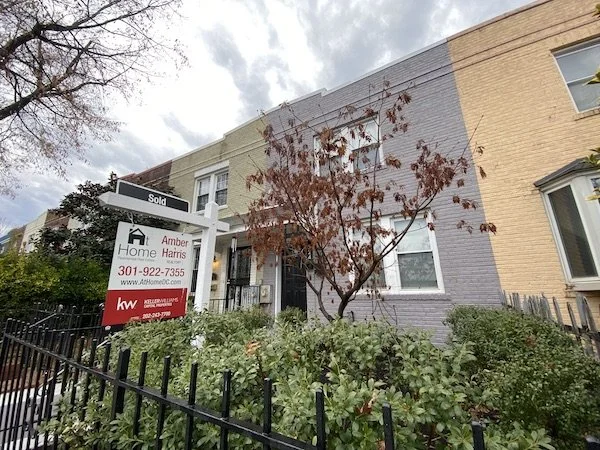I often talk to clients about micro-markets when it comes to real estate. Within one region or city, there often are smaller markets that have their own trends and dynamics. As a case in point, the DC condo market is currently friendlier to buyers, while we’re still seeing lack of inventory and escalation with detached homes in Chevy Chase and similar communities.
However, this isn’t a post on the ever-changing market (reach out for the latest on that, as always), rather it is about something equally important and that you can control. Regardless of the micro-market, there are several key things you can do as a homeowner to put you on the best footing when it is time to sell your home. While there are many more, my three top tips for savvy future sellers are:
1. Maintain Your Systems, Keep Your Records: Even if systems are older, they don’t have to be a barrier to buyers. Everything from your water heater to your HVAC has an estimated life and, while the actual lifespan can vary greatly, your stacking the odds in your favor for a longer lifei with regular servicing. So, sign up for the annual or biannual maintenance plan, change those filters and keep a digital or physical folder with manuals and records for easy reference when you’re ready to sell. And, if you think age of one more systems may still be a distraction, you can always opt to purchase a home warranty before you list that will transfer to the buyer and offer them peace of mind.
2. Keep Up With Cleaning: Habits matter…especially cleaning ones. As a real estate agent, I have seen the most meticulously maintained homes and ones that, while disgusting, make you feel less guilty about skipping a week of vacuuming at home. Make it your norm, beyond general housekeeping, to do a seasonal deep clean inside AND outside — emptying cabinets, scrubbing baseboards and trim, power washing and more. And, to really save money, please maintain the countertops in your kitchen and bathrooms (resealing and polishing granite 1-2 times per year, for example) and scrub that grout and strip and re-caulk bathrooms at the first signs of peeling and/or mold.
3. Consult the Pros Before Major Updates: If you know selling is on the horizon (especially in the next 1-5 years), reach out to a trusted design and real estate professional (it me) to get guidance on any and all of your plans. Some things are easier to change without much time or expense before listing (e.g., paint or a light fixture), but kitchens, baths and removing/adding walls to change spaces can easily open you up to more buyers (or turn them away). Also, don’t wait to invest in your home until it’s time to sell if it’s in your budget and it would enrich your home life now! And, just like maintenance, keep those records of expenditures so we can use them to market your home!
So, how would you rate yourself on these three areas? Real estate is powerful because its something you find daily utility in and that builds personal wealth at the same time…pour into it to maximize your enjoyment and equity today and beyond!
Amber Harris is the owner of At Home DC, an interior decorator and a licensed real estate agent with Keller Williams Capital Properties working with clients in DC, Maryland and Virginia.















